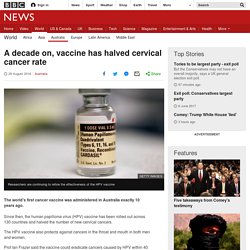

Home Page. Menno Schilthuizen - Naturalis Biodiversity Center. GeoBC. Overview To view and download the PDF maps for free in your browser follow the instructions below.

You may also need to install a PDF viewing application such as Adobe Reader or a Mobile viewer to view the downloaded PDF maps on your desktop or Mobile Device. Copyright © 2013, Province of British Columbia. All rights reserved. This material is owned by the Government of British Columbia and protected by copyright law. Anyone is allowed to print off one copy of this map for personal use without permission from the Province of British Columbia. These maps are created on a page size of 44" x 28".
Quick Start Instructions launch the map viewer by clicking "Launch Application" zoom in to an area of interest click on a grid square a pop-up window appears allowing access to view map using your internet browser’s “save as” or “save page as”, save the PDF map to your computer’s hard drive. Coastal Science and Societies.
Questioning the Mpemba effect: hot water does not cool more quickly than cold. Debate heats up over claims that hot water sometimes freezes faster than cold. It seems logical to expect cold water to freeze faster than hot, but some experiments have suggested the opposite.

There’s now a new explanation for why hot water might freeze faster than cold under certain conditions. The phenomenon, known as the Mpemba effect, may be due to the properties of the chemical bonds that link up neighboring water molecules, a team of chemists reports. Yet other researchers contend that the effect doesn’t exist at all. References to quick-freezing hot water date back to the early days of science: Aristotle reported observing hot water freezing faster than cold. In the 1960s, a Tanzanian student named Erasto Mpemba noticed that ice cream solidified faster when put into the freezer steaming hot. In a paper published online December 6 in Journal of Chemical Theory and Computation, scientists propose that hydrogen bonds, the links formed between hydrogen atoms and the oxygen atoms of neighboring water molecules, could be part of the puzzle.
Skeptics. Identification guides and pages. Wildlife tracking and cams. Moths and Butterfly Info. Getting started. Science Cafes/Pubs. The Scale of the Universe 2. STAO. Citizen Science. Evolution. Climate Change. Biodiversity. Glyphosate Vs. Caffeine: Acute and Chronic Toxicity Assessments Explained – Food and Farm Discussion Lab. [Please consider supporting Food and Farm Discussion Lab with an ongoing contribution of $1, $2, $3, $5 or $10 a month on Patreon.

All contributors receive a subscription to our email newsletter the FAFDL Dispatch. ] GUEST AUTHOR: Alison Bernstein, PhD is a neuroscientist, who studies the role of epigenetics and environmental exposures in Parkinson’s disease. Follow her on Facebook and G+, where she writes as “Mommy PhD”, and on Twitter @mommyphd2. Article length: 2800 words – 12-15 minute read. Fear of chemicals in our food has taken on an outsized role in the food discussion. Much of this problem arises from a general misunderstanding of the science of toxicity,. What is an LD50? Let’s get something straight about LD50 – it is a measure of ACUTE toxicity. An LD50, or the median Lethal Dose, and the related LC50 (median lethal concentration, for inhalation rather than ingestion) are measures of acute toxicity only. Measures of chronic toxicity Oral RfD for caffeine Oral RfD for glyphosate.
Talking Biotech: 'Know GMO' documentary fights food fears, misinformation with science. A decade on, vaccine has halved cervical cancer rate. Image copyright Getty Images The world's first cancer vaccine was administered in Australia exactly 10 years ago.

Since then, the human papilloma virus (HPV) vaccine has been rolled out across 130 countries and halved the number of new cervical cancers. The HPV vaccine also protects against cancers in the throat and mouth in both men and women. Prof Ian Frazer said the vaccine could eradicate cancers caused by HPV within 40 years. "It helps not only control cervical cancer but also the oropharyngeal cancer - the cancers inside the mouth that are caused by these viruses," Prof Frazer, chief executive of the Translational Research Institute, said. "If we vaccinate enough people we will eliminate these viruses because they only infect humans. 'Very common indeed' HPV is a very common virus that lives on our skin and other areas of the body, including the mouth, genital areas and anus. The virus is most often passed during vaginal and anal sex, but can also be transmitted through oral sex. The research linking autism to vaccines is even more bogus than you think.
Audible — Smarter Every Day. Airvisual. iBiology: Bringing the world's best biology videos to you. B.C. Frogwatch Program – Environment – Province of British Columbia.